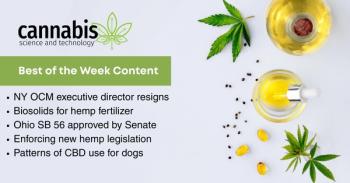
South Carolina’s Attorney General Issues Opinion on the Legality of Beverages Containing Hemp-Derived Cannabinoids
The Attorney General's office says that non-alcoholic beverages with hemp-derived tetrahydrocannabinol (THC) with concentrations of delta-9 THC of no more than 0.3% are legal in South Carolina, assuming you can verify they meet this threshold.
A recent
Smith wrote in a letter to the Attorney General’s (AG) office that “Recently, South Carolina distributors have been requested to provide hemp-infused beverages to various retailers in South Carolina…No statute, regulation, agency guidance or prior Attorney General Opinion I [sic] provides a clear answer as to whether these hemp-infused beverages that are manufactured, distributed, or sold in South Carolina are legal…Manufacturers and distributors in South Carolina need clear guidance.”
The opinion from the AG’s office explains that the passage of the 2018 Farm Bill removed hemp from the classification of a controlled substance and was therefore made legal, so long as the concentration of THC remained at or below 0.3%. It does, however, state that the AG’s office cannot make a “blanket” determination on the legality of this category of products without knowing whether each product meets this threshold of THC. This must be made on a case-by-case basis, says the opinion. Essentially, without a regulatory framework that ensures consistency across products, the AG cannot for sure know if every product marketed this way is legal.
Newsletter
Unlock the latest breakthroughs in cannabis science—subscribe now to get expert insights, research, and industry updates delivered to your inbox.





